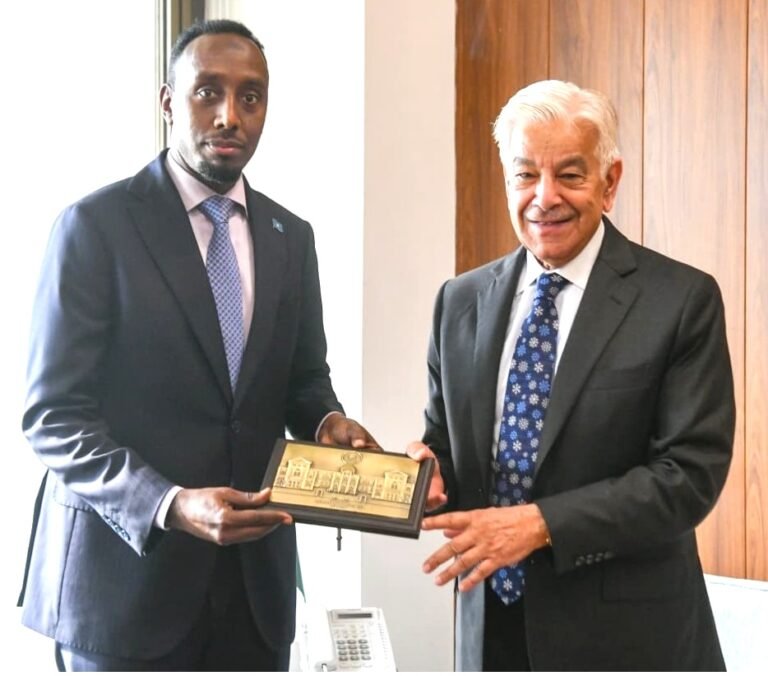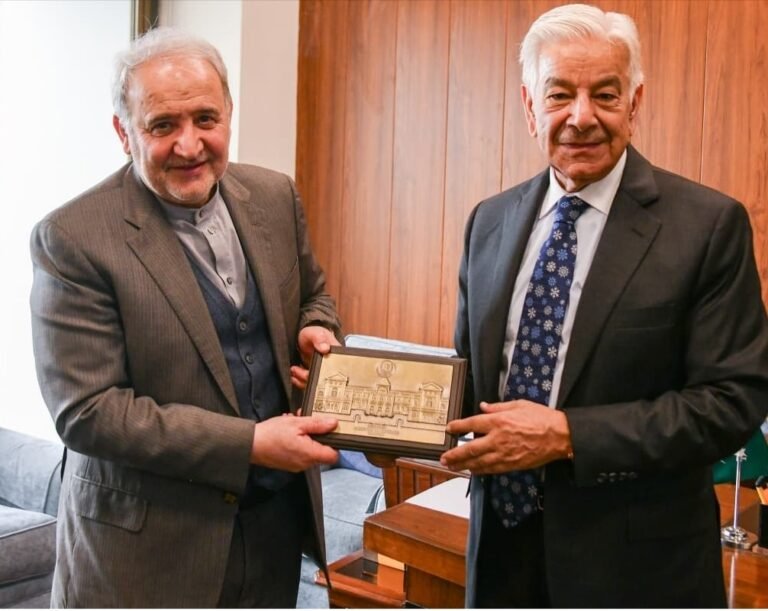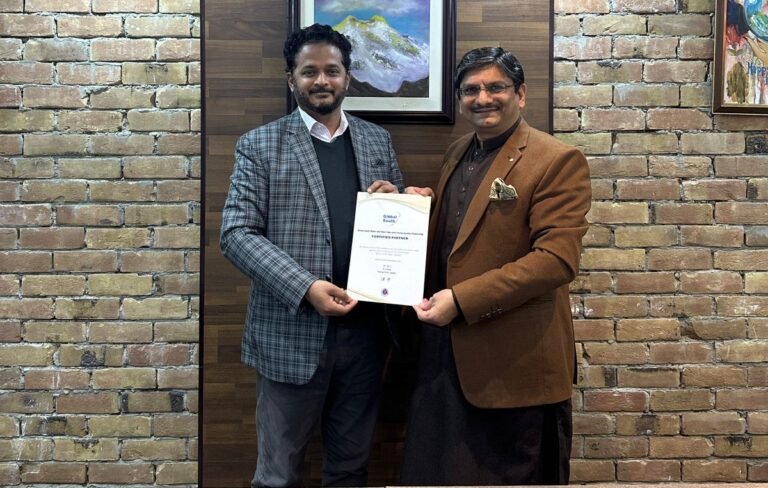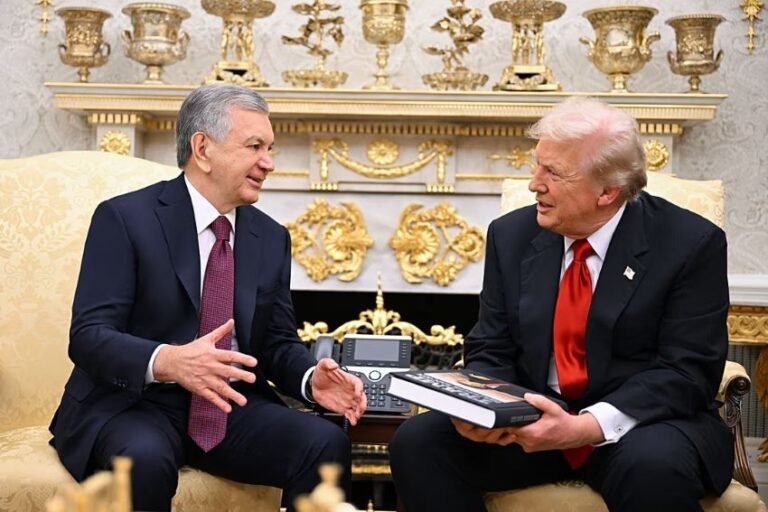China and Kazakhstan have shared a close, long-standing relationship since Kazakhstan’s independence. China was among the first countries to recognize Kazakhstan’s sovereignty in 1991, and over the past three decades their ties have evolved into a “permanent comprehensive strategic partnership.”
Historically, the two nations have built their relationship on friendship and mutual respect, with no conflicts of interest. This has been underpinned by their Silk Road heritage Xi Jinping noted that an ancient Silk Road linked China and Central Asia “more than 2,000 years ago” and by growing economic interdependence.
China invested early in Kazakhstan’s oil and gas pipelines and railways, and Kazakhstan has become a key transit hub for China’s overland trade. In recent years bilateral trade has surged to record highs (around US$41–44 billion in 2023-24, making China Kazakhstan’s largest trade partner and export market.
At the same time, people-to-people links (visa-free travel, cultural exchanges and tourism initiatives) and institutional ties (joint projects like the “Luban Workshops”, university campuses, Confucius Institutes, and deep cooperation within the SCO and United Nations) have flourished. Both governments emphasize their mutual support on core interests and describe the relationship as a model state-to-state partnership.
Read More: Kazakhstan, China Vow to Deepen Strategic Partnership
Strategic Cooperation Agreements (June 2025)
In June 2025, Chinese President Xi Jinping made a state visit to Astana and met with Kazakh President Kassym-Jomart Tokayev.
The summit reaffirmed the “time-tested” strategic friendship: Tokayev hailed China as a “time-tested reliable strategic partner”, and Xi stressed that China views its Kazakh ties from a “strategic and long-term perspective”. To solidify this partnership, the two sides signed 24 intergovernmental and interagency agreements covering a broad array of sectors. These accords extent:
Energy and Infrastructure: Cooperation in oil, gas and (planned) nuclear power projects Kazakhstan has agreed to build several nuclear power plants with China’s support as well as aerospace and transport linkages.
Digital Economy & Trade Facilitation: Digitalization of services and administration, customs coordination, e-commerce development and standards. They also include trade and investment terms: for example, an agreement on the promotion and mutual protection of investments, and a technical-economic cooperation pact.
Agriculture and Food Processing: Collaborations on farming technology, processing of agricultural products and food trade. (Chinese “green lanes” at border crossings already simplify Kazakhstan’s agri-exports.)
Tourism and Cultural Exchange: Initiatives to boost tourism (e.g. the “Year of China Tourism in Kazakhstan” 2025) and to deepen media, educational and cultural ties.
Intellectual Property and Science/Health: Joint programs in science, technology and medicine, as well as stronger intellectual property protection and media cooperation.
Read More: Kazakhstan Emerges as Key China-Europe Trade Link
Together, these agreements are intended to deepen the strategic partnership and interconnectivity between the two economies. As Trend News noted, they “underscore both countries’ commitment to strengthening regional connectivity and joint development across critical sectors”.
Tokayev emphasized that bilateral ties have entered a “new golden era” thanks to such cooperation. In their talks, Xi and Tokayev also pledged mutual backing on regional and global issues: Xi lauded the role of China–Kazakh friendship in bringing “positive energy” to the world, and both sides agreed to continue coordinating in the UN, SCO and other forums to safeguard a fair international order.
Chinese-Backed Industrial Projects (224 Projects, USD 66.4 B)
Alongside intergovernmental accords, China and Kazakhstan have rapidly expanded concrete investments. Kazakh officials report that 224 industrial projects worth about USD 66.4 billion are currently being implemented with Chinese participation. These projects together are expected to create roughly 50,000 jobs in Kazakhstan.
In total, China ranks among Kazakhstan’s top five investors having already invested some $26.4 billion in 2005–2024). Prime Minister Olzhas Bektenov has stressed that Xi’s visit “gave impetus” to cooperation and urged swift implementation of agreements. He reminded the government that attracting at least $150 billion in foreign investment by 2029 is a national goal, with China a top-priority partner in that drive.
The industrial projects include many sectors. Major categories include:
Mining & Metals: New mines and metallurgical plants (e.g. steel, copper) are under development. Chinese groups like CHN Energy and CITIC (Dalian Hesheng) are active in resource extraction and processing, signaling China’s interest in Kazakhstan’s mineral wealth.
Energy & Chemicals: Aside from pipelines, projects include petrochemical and fertilizer complexes. China’s East Hope Group, for example, has been involved in fertilizer production ventures. (Kazakhstan has also agreed to be a major uranium supplier to China, and signed deals with China National Nuclear Corporation on uranium extraction.
Renewable & Green Projects: Wind, solar and hydropower initiatives. Completed projects like the Zhanatas wind farm and Turgusun hydro station are noted by Chinese officials, and new “green economy” facilities are underway – for instance, Almaty Region signed seven projects (~$6 billion) in green energy, logistics and manufacturing.
Manufacturing and Industry: Joint factories producing materials and goods. Kazakhstan highlights Chinese investment in high-tech and non-resource industries, with companies like Fufeng Group (bio-chemicals) and East Hope (chemicals) exploring new industrial parks.
Transport & Logistics: Expansion of rail and road networks. Chinese and Kazakh firms are partnering to improve the China–Europe rail corridor (e.g. the Xi’an–Kazakhstan terminal, Eurasian highway links), as well as build logistics centers.
Agriculture & Agro-Processing: Large-scale farming and food projects. A prominent example is a fully integrated wheat-processing complex being built by China’s Dalian Hesheng in Akmola Region worth about 900 billion tenge, creating ~1,000 jobs. Another is a $1 billion deep-grain processing plant in Almaty Region with CITIC Construction. Such projects aim to boost Kazakh food exports and value-added processing.
Digital & High-Tech: Information technology parks, data centers and digital services. Agreements on digitalization and innovation indicate Chinese firms are also eyeing Kazakhstan’s tech sector, including e-commerce platforms and smart-city projects.
Read More: Kazakhstan, China Deepen Ties with 224 Projects
These projects are geographically widespread, For instance:
- Almaty Region is moving forward with 7 Chinese-backed projects (~$6 B) in renewable energy, transport/logistics, agro-processing and manufacturing.
- Akmola Region (near Astana) is developing an industrial zone anchored by the Dalian Hesheng wheat plant.
- Astana city, Kyzylorda and Turkistan Regions have each put forward major initiatives in infrastructure, agriculture and industry during recent talks.
- East, West and Abai Regions resource-rich areas were instructed to accelerate Chinese-backed oil, gas, mining and heavy-industry projects.
Each side portrays these investments as economically transformative. Kazakh officials note that Chinese projects will “give a new impetus” to Kazakhstan’s industrial base and help achieve its ambitious trade and investment goals. Indeed, Kazakhstan’s Deputy Foreign Minister reported that with 224 projects in hand, Kazakhstan–China trade has already hit ~$43.8 billion and is targeted to reach $100 billion.
Prime Minister Bektenov vowed full support and oversight: “China is one of our top partners. We will fully support these projects, and I will personally monitor their progress,” he said. Chinese commentators similarly highlight that their companies are creating thousands of jobs and building high-tech capacity, signaling trust in Kazakhstan as a manufacturing hub.
In short, the projects are seen as mutually beneficial diversifying Kazakhstan’s economy beyond oil and raising its industrial skills, while advancing China’s search for new markets, resources and regional linkages under the Belt and Road framework.
Regional Implications and Economic Integration
The deepening China–Kazakhstan partnership has significant regional dimensions. Kazakhstan is the largest and most economically advanced of the Central Asian states, and its trajectory heavily influences regional integration. By bolstering Kazakhstan’s infrastructure and industry, Chinese involvement strengthens the North–South and East–West corridors that connect China to Europe and the Middle East via Central Asia.
As one analysis notes, over 80% of China’s overland trade with Europe transits Kazakhstan. Chinese-financed improvements to rail lines, roads, and logistics hubs thus enhance the entire “Middle Corridor” connecting Central Asia to Europe, offering Beijing an alternative route that bypasses Russia. Moreover, energy and resource ties (oil, gas, uranium) increase Beijing’s leverage in securing diversified supplies; Kazakhstan alone accounted for 43% of the world’s uranium output in 2022.
The recent summit in Astana also produced broader Central Asia–China agreements (the Astana Declaration and a formal friendship treaty), indicating China’s aim to knit the region more closely under its economic influence.
From a geopolitical standpoint, Kazakhstan’s strategy has been to pursue multi-vector diplomacy. While deepening economic links with China, Astana remains security-aligned with Russia (within the CSTO) and gradually develops ties with Western institutions. In official rhetoric, Kazakh leaders emphasize that they “stand ready to support” China’s global initiatives like the Belt and Road Initiativeen.people.cn and work with China on UN and SCO agendas, portraying themselves as an equal partner rather than a subordinate.
For its part, Beijing frames the relationship as a contribution to regional stability: Xi pledged to collaborate on counterterrorism and multilateralism, stating that China would “safeguard international justice” and oppose “hegemonism” alongside Central Asian countries. Such language is clearly directed at external powers, reflecting China’s broader goal of fortifying its influence in a region traditionally within Russia’s sphere.
In sum, the China–Kazakhstan partnership reinforces Beijing’s foothold in Central Asia while giving Kazakhstan access to Chinese capital and markets, accelerating regional economic integration under shared infrastructure and policy frameworks.
Diplomatically, both governments have highlighted the win-win nature of the ties. Tokayev repeatedly calls Kazakhstan-China relations a “model” of neighboring cooperation and stresses that China never imposes political conditions. Beijing’s statements reciprocate this positivity, with Xi expressing readiness to work “hand in hand” with Kazakhstan on development and connectivity.
The Central Asia summit establishes one thing, that China is increasingly seen as a high-value industry partner in Kazakhstan, not just an investor in energy. Looking ahead, both sides expect the partnership now in a “new golden era” according to Tokayev to continue boosting Kazakhstan’s economic transformation and to anchor China’s strategy of securing overland routes, resources and regional stability.

Aroosa Salahuddin
Managing Editor at The Diplomatic Insight.
Aroosa has extensive experience in media, public relations, project management, and strategic communications. With an MPhil in Strategic Studies and a specialization in Pakistan’s digital diplomacy, Aroosa has worked with influential national and international organizations. Her expertise spans advocacy, crisis communication, digital strategy, and stakeholder engagement.








